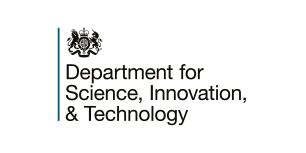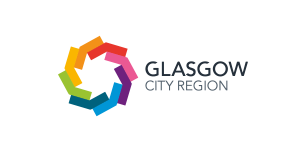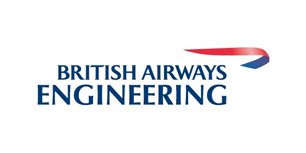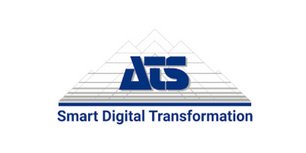The NMIS ReMake programme positions the National Manufacturing Institute Scotland (NMIS) and its initiatives as a leading force in circular manufacturing innovation.
At its heart is the principle of keeping products and materials at their highest value for as long as possible through approaches such as remanufacturing, repair, and reuse.
Our ReMake programme is driving impact across high-integrity sectors by combining advanced technologies, new business models, and skills development.
Through demonstrator projects and collaborative research, the programme is advancing circular economy practices that reduce waste, cut emissions, and create economic opportunities for manufacturers of all sizes.
Key strands of the programme include:
-
The ReMake Value Retention Centre (RVRC): a £10m+ UKRI-funded centre focused on circular solutions for sectors such as energy and transport.
-
Digital Product Passports (DPP): enabling traceability, compliance, and data-driven value retention.
-
ReMake Glasgow: a pilot project showcasing circular innovation through practical demonstrators and industry engagement.
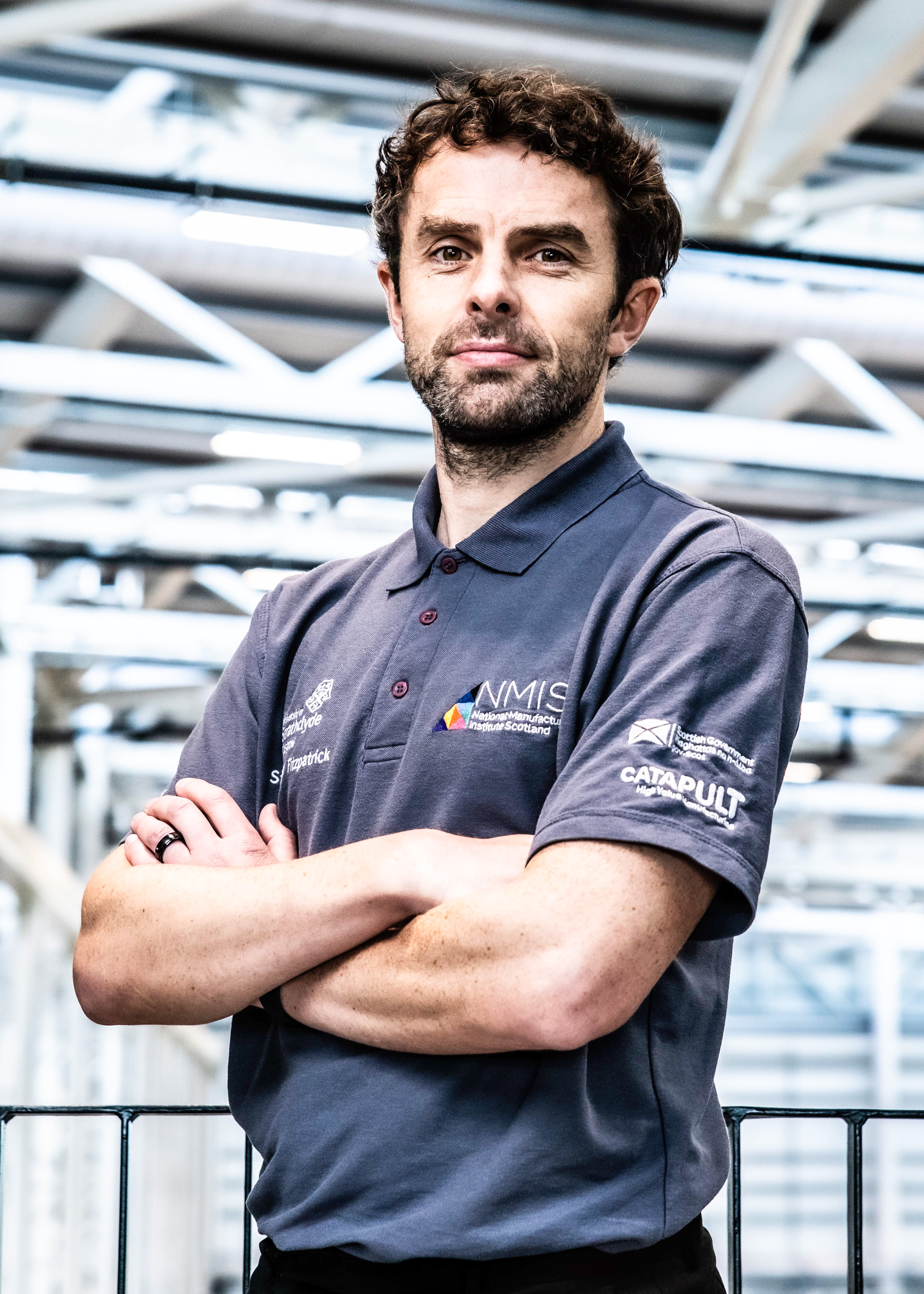
Stephen Fitzpartrick
Digital Factory Director
Stephen is a Fellow of the Institution of Mechanical Engineers. He previously led the NMIS machining and additive research division in his role as Senior Knowledge Exchange Fellow.
Stephen leads the NMIS Digital Factory, one of the five specialist centres within the NMIS Group. He will provide the vision and leadership to drive forward the centre in its ambition to transform the manufacturing landscape in Scotland and the wider UK through spearheading the development of innovative digital technologies applied into manufacturing processes.
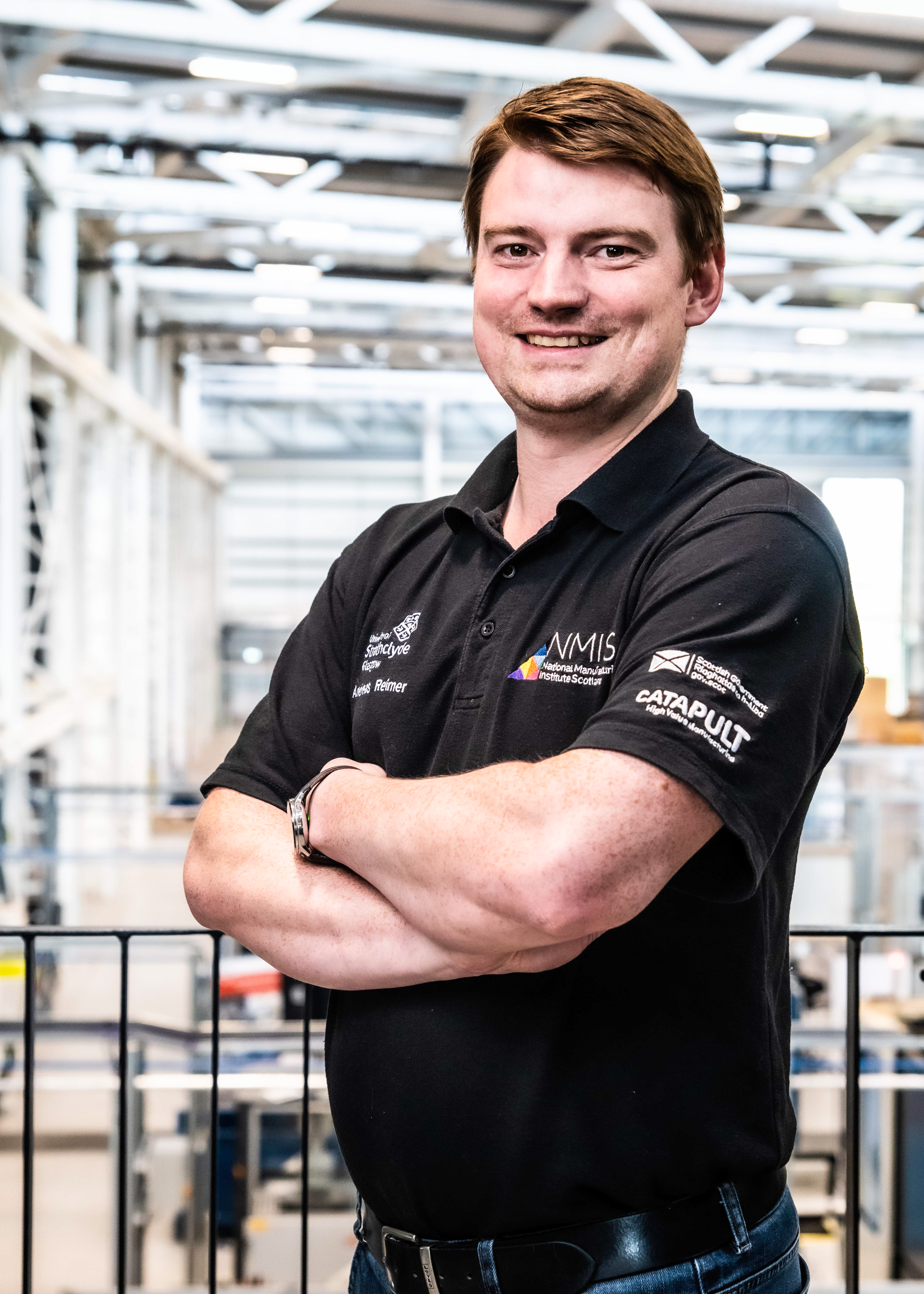
Andreas Reimer
ReMake Lead, Digital Factory
Andreas is a Strategic Program (Theme) Lead and Manufacturing (R&D) Engineer with expertise in machining optimisation, additive manufacturing, and remanufacturing at NMIS. He completed his Engineering Doctorate at the University of Strathclyde, with a specific focus on the optimization of high-speed die machining processes. Prior to his doctoral studies, he served as a Research Assistant at the University of Magdeburg in Germany, where he contributed to innovative research in his field. Andreas pursued his education in Industrial Engineering with a concentration on production engineering, acquiring valuable knowledge and skills that have proven to be invaluable in the filed of additive manufacturing.
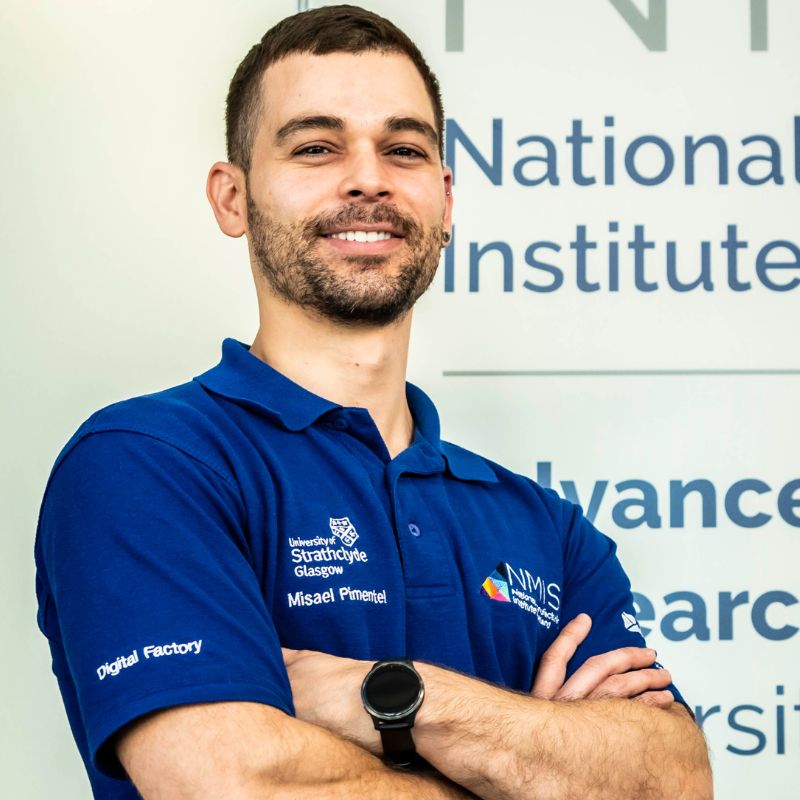
Misael Pimentel
Direct Energy Deposition (DED) Arc Theme Lead, Digital Factory
Misael is currently the Direct Energy Deposition (DED) Arc Welding Theme Lead at the National Manufacturing Institute Scotland, where he has been working for over four years. Prior to this role, he served as a KE Associate Manufacturing Engineer. With a PhD in Arc Welding technologies, his expertise lies in process optimisation for advanced joining techniques, with a background in research, business development, and project management. Misael holds experience in various industries, including internships at Unilever and Lloyd's Register, and research roles with FAPESP and the National Council for Scientific and Technological Development (CNPq). He also holds an exchange Bachelor's degree from the University of Strathclyde, where his research focused on solving complex industrial problems using computational methods.
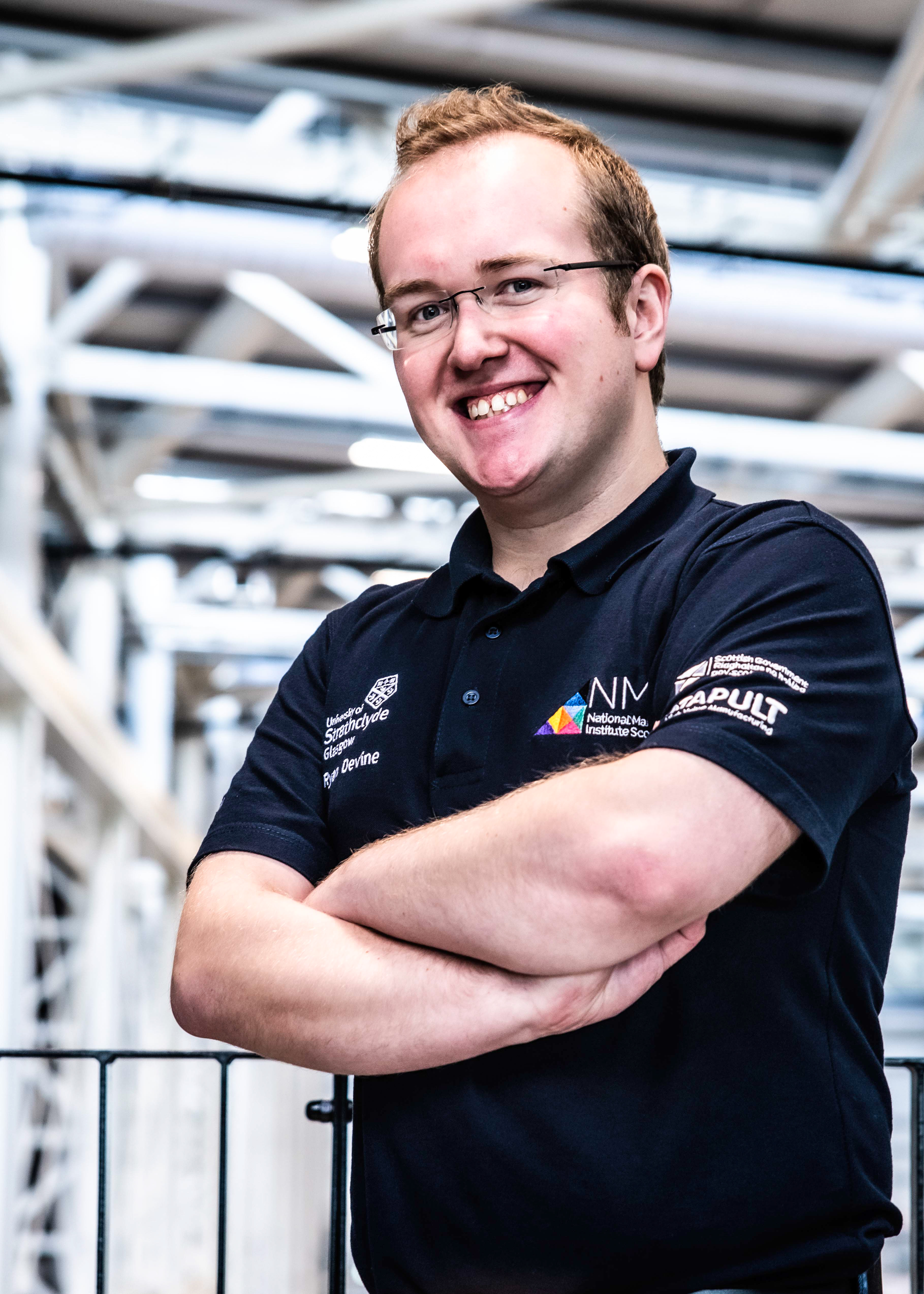
Ryan Devine
Research & Development Engineer, Digital Factory
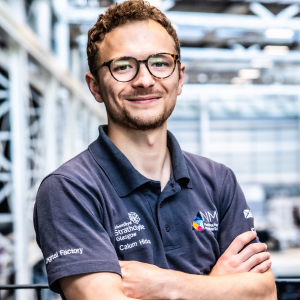
Calum Hicks
Research & Development Engineer, Digital Factory
.jpg)
Ashfaq Mohammad
Senior Research And Development Engineer, Digital Factory
With approximately seven years of experience in Additive Manufacturing-based research, Ashfaq possesses a hands-on expertise in Arcam’s Electron Beam Melting (EBM), FDM, and SLA machines. Having undergone advanced-level training to develop new material themes on the Arcam A2 machine, he has demonstrated a commitment to expanding his skill set. As a Principal Investigator, he has successfully completed a funded project valued at 0.4 million USD. Leading a three-member team, he focused on developing new themes for constructing pore-free parts from Titanium Aluminide using the EBM process. Surpassing initial project goals, the team achieved the production of highly porous components with struts as thin as half a millimeter. Additionally, Ashfaq has collaborated with dental surgeons to design customized implants for patients in Saudi Arabian hospitals, showcasing a multidisciplinary approach to his research.
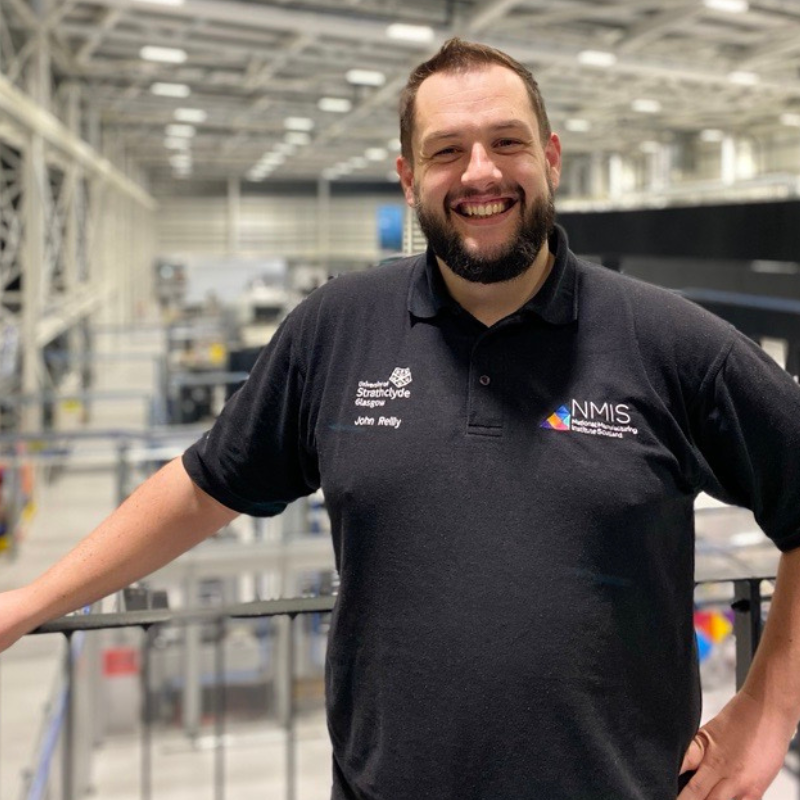
John Reilly
Research & Development Engineer, Digital Factory
John is a versatile professional with experience in various sectors, seamlessly transitioning between roles in electrical and software design. At NMIS, he drives Industry 4.0 initiatives and spearheaded the DEMO project, digitally connecting 73 machines and establishing a private 5G network. Currently leading the ReMake project, John is pioneering a digital framework for product digital passports, promoting traceability and circular economy practices.
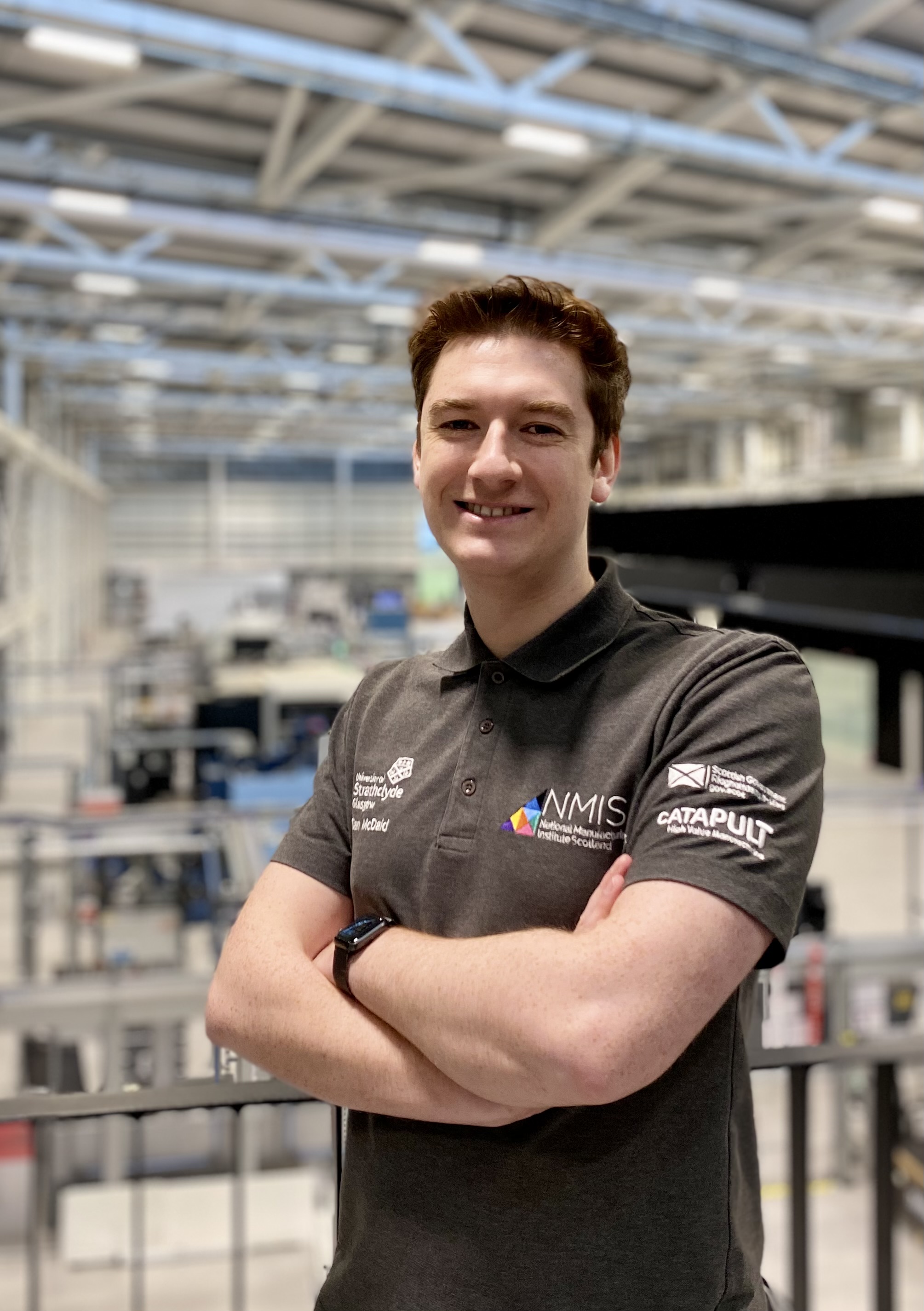
Daniel McDaid
Research & Development engineer, Digital Factory
Dan is a Research and Development engineer in the Design Engineering team. As part of the Verification & Validation / Market Acceptance technical theme, he has been critical in developing the processes, tools, and templates that are now employed across NMIS and within SMEs on a regular basis.
He has also been involved in multiple product development projects across numerous industry sectors, with a focus on capturing product requirements, producing concept designs, and CAD modelling for concept verification.
Prior to NMIS, Dan worked at Belcan where he was primarily involved in the standardisation of Rolls-Royce civil large gas turbine engine components and engine certification programmes to assist with entry into service and passenger safety.
This ReMake Glasgow project is part-funded by the Glasgow City Region Innovation Accelerator programme.
Led by Innovate UK on behalf of UK Research and Innovation, the pilot Innovation Accelerator programme is investing £100m in 26 transformative R&D projects to accelerate the growth of three high-potential innovation clusters – Glasgow City Region, Greater Manchester and West Midlands.
